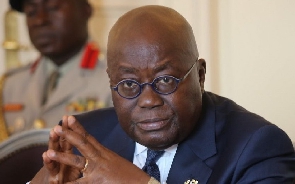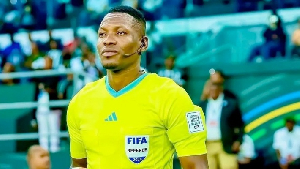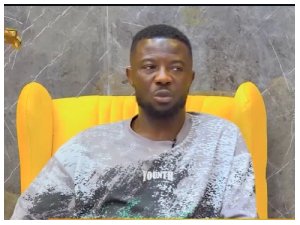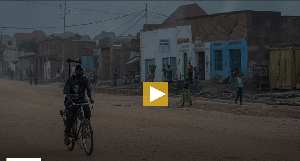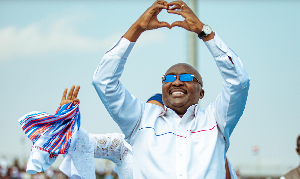I was disappointed in the results...I just have questions...we talked to Ghanaians. Ghanaians told us in our faces they were tired, we saw the poverty, we saw the difficulties, we saw where there was no water...and yet the results are saying we are okay. Ms. Eva Lokko-Vice Presidential candidate of the Progressive People’s Party. (PPP)
This is an extract of a statement made by the indefatigable Ms. Eva Lokko when she granted an interview to Citi fm. Her party could only garner 0.59% of total vote cast. The apparent shock and disillusionment evident in her words are perhaps similar sentiments many Ghanaians are nursing in their hearts and minds. In my estimation, her views about the results of the just ended 2012 presidential and parliamentary elections are a minute fraction of the real dynamics of the political wind blowing across the length and breadth of the country.
It must be made clear that Ghanaian politics goes beyond merely identifying with the plight of the masses and promising them plausible solutions to their deplorable situations. It is not that the poor are not desirous to come out of their woes whenever they hear good politicians who are willing to help them. It seems most of the electorates are tied to certain inimical factors they can hardly extricate themselves from.
Prior to the elections, there was a huge clamour for an issue based campaign devoid of insults and personality persecutions. The Institute of Economic Affairs (IEA) did its bit by professionally conducting two presidential debates for the major political parties all in bid to put the elections in the right perspectives.
However, it appears that most of the electorates voted along certain lines other than proposed policies. Others too voted for the sake of it. And if what Ms Eva Lokko said holds any truth, then, politics in Ghana has taken a different dimension. The question, therefore, we need to ask ourselves is, what are the factors holding so much sway in Ghanaian politics?
Take a walk down memory lane and recollect those SRC elections that were held in your secondary school days. Do you remember what prompted you to vote for the prefects on parade? Was it because of how tall or short some of them were? Or was it due to how articulate some of them were? It even passes as shocking to observe certain voting patterns at the tertiary level during SRC, faculty or even halls of residence elections. The tribal and political affiliation cards are shuffled prejudicially. It is assumed that at such high level of intellectual pursuit, there will be little or no space for such political needlessness. But what do we see?
From my little experience at that level, I realised a good number of people did not vote based on the manifestos offered by the candidates. The trend of voting was largely informed by these factors: tribalism, political affinity, hall affiliation, programme of study and even religious persuasions. The ladies were somewhat the worst offenders; the physical appearance of the various candidates was their preferred criterion.
In line with this, I noted that most of the candidates had artificially modified their posters as most of our politicians are doing today. Those who failed to go by the status quo and chose the path of political conservatism in the face of the negative prevailing political dynamism, paid dearly for their supposed political incorrectness or rigidity. Admittedly, such negative political tendencies as I will call them are politically inevitable but socially unethical. Our level of economic development and cohesion cannot witness a positive surge if such inimical tendencies are occupying a large space on our political landscape.
If a sizeable portion of our intellectuals are hooked on to these political trivialities, I wonder what our unlettered folks will do. It is, therefore, not surprising to watch some politicians vent their disappointment and rant days on end all because they felt the electorates should have bought into their campaign messages that were packaged to suit their immediate needs. Could it be that they (politicians) failed or they were perhaps not smart enough to have fully appreciated the political terrain in the country?
A friend told me of a story about an erstwhile president of this country who on his campaign in the western region unimpressed those gathered for the rally with promises that he felt met their needs. Their response was dull and the president had to react quickly by asking them what they wanted.
After the community leaders had put their heads together, they told the president they wanted bundles of ‘wire.’ When he (president) was told the wires were used to trap game, he was utterly shocked but honoured his promise. On the day of voting, that community returned in equal measure his kindness. That same president also had to stir some tribal sentiments on another campaign platform to win more votes when the political odds were against him. What therefore is the lesson here? The earlier those hungry for political office got used to the political dynamics in Ghana, the better it would be for them. Nevertheless, it will be suicidal if politicians over explore these negative avenues and shut their eyes to the very essentials needed for the overall development of the country. For this reason, I urge political leaders to initiate policies that will benefit all Ghanaians and shun the winner-takes-all attitude.
Let us narrow this piece to the two gentlemen in politics I admire a lot: Dr. Abu Sakara and Dr. Papa Kwesi Nduom. These gentlemen without any strand of doubt have distinguished themselves well in their fields of endeavour. A week or so after the release of the electoral results, I could not fathom why these astute politicians performed abysmally though I knew they will not win.
If you ask me what accounted for their heavy losses, I will say their defeats stemmed from two angles. First of all, they must blame themselves for their woes. I wonder if they are not aware of the biblical injunction, ‘a house divided cannot stand.’ What I think Dr. Kwame Nkrumah is wishing for in his grave will be for the fragments of his political stock to unite and stage huge comeback.
The other reason has to do with their inability to closely monitor or study the mixed multitude of the voting populace. It is a fact that a greater percentage of the voters are illiterates and semi illiterates. Inasmuch as they (Dr. Sakara and Dr. Nduom) appealed greatly to the educated masses, they had made little impact on the illiterates. I task the research teams of the PPP and CPP to initiate a finding into what has been suggested and they will fully get the import of my message. On a personal score, whereas the NDC positioned itself chiefly to appeal to every section of the voting populace especially the illiterates with their theme message-The better Ghana agenda, the NPP in a singular fashion propelled their free education to the hilt. To be blunt, a hungry man or a woman with little or no money to trade has little regard for free education. In fact, it takes an informed mind to better understand the long term benefits of the free education concept as opposed to the contents of the better Ghana agenda which every political party knows are basic provisions every government must honour. Next time the NPP must wield a double sharp edge sword that cuts at both sides.
Ghana is a growing democracy and I yearn to see an era where tribalism, cheap personality propaganda and other trivialities will not be the linchpins that determine our leaders. I crave for an era where health bills, education policies, industrialisation, zero corruption policies, progressive foreign policies or even infrastructural developments can dethrone or enthrone a president.
Well, until that time, I guess some of our politicians with good intentions for this country will have to thoroughly study the calibre of the political ‘animals’ they are dealing with and act accordingly.
AUTHOR’S NAME: OKOFO-DARTEY SAMUEL
E-MAIL: sodesq2000@yahoo.com
Opinions of Sunday, 6 January 2013
Columnist: Okofo-Dartey, Samuel


